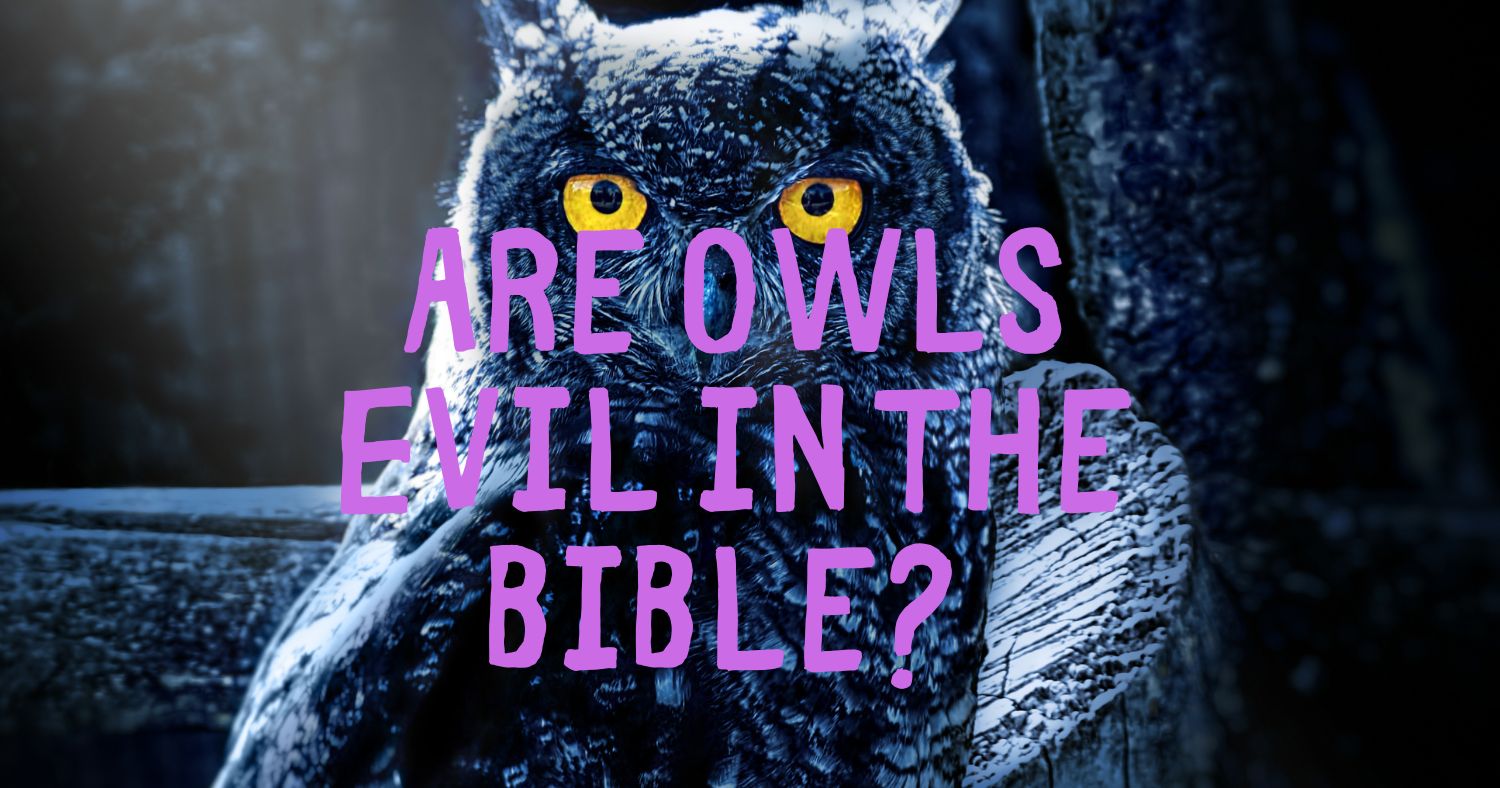Are Owls Evil in the Bible? Debunking Myths and Exploring Biblical References Owls have intrigued people for hundreds of years. Their specific behaviours and mysterious nature regularly cause various interpretations. This article delves deep into the query, “Are owls evil within the Bible?” By inspecting biblical texts, cultural perceptions, and contemporary interpretations, we intend to provide a comprehensive know-how of owls inside the biblical context.
Biblical References to Owls
This segment would delve into specific verses of Evil in the Bible where owls are mentioned, along with Leviticus 11:16 and Isaiah 34:11. It might analyse the context of these verses and the way they make a contribution to the know-how of owls as unclean or poor symbols in scripture.
Symbolism of Owls in Scripture
Here, the item might discover the broader symbolism related to owls evil in the Bible, focussing on topics of desolation, judgement, and moral impurity. It could speak how those symbols relate to the religious messages conveyed inside the text.
Cultural Interpretations of Owls
This segment could study how unique cultures view owls. While a few cultures see them as wise and shielding, others interpret them as harbingers of awful luck or evil omens. This cultural context can provide a deeper understanding of their biblical portrayal.
Theological Perspectives on Owl Symbolism
In this element, the dialogue would flip to theological interpretations of owls. It might deal with how students understand the representation of owls evil in the Bible and what it means for modern readers. This should encompass discussions on metaphorical interpretations and religious instructions.
Conclusion: Are Owls Evil in the Bible?
Finally, the thing would summarise the findings from previous sections, weighing the evidence for and towards the concept that owls are inherently evil in the Bible context. It could inspire readers to reflect on their interpretations and the broader implications of owl symbolism in spirituality.
Key Takeaways
- Biblical References: Owls are Evil in the Bible, primarily within the context of unclean animals
- Symbolism: They often signify desolation, darkness, and judgement.
- Cultural Perspectives: Owls bring exceptional meanings in diverse cultures, from awareness to omens of death.
- Modern Views: Today, perceptions of owls range broadly, and they’re often considered as captivating in preference to evil.
Understanding Evil in the Bible Context of Owls
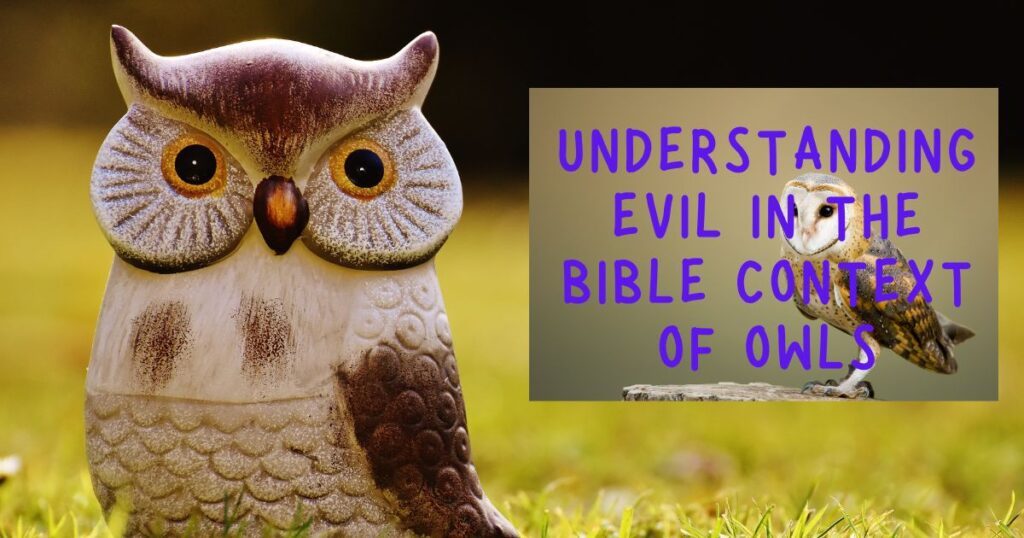
Understanding Evil in the Bible Context of Owls
Biblical References to Owls
Owls show up numerous times in the Book of scriptures, in most cases inside the Ancient Confirmation. Their depiction isn’t especially complimenting; regularly partner them with uncleanliness and desolation.
Key Verses
- Leviticus 11:sixteen: “The owl, the girl of the owl, and the cormorant… are unclean to you.”
- Isaiah 34:eleven: “But the pelican and the porcupine should have it; the owl and the raven might dwell in it.”
- Micah 1:8: “I will regret and cry; I will go stripped and uncovered; I will make a language fair like the owls.”
- Micah 1:8: “I will lament and wail; I will go stripped and bare; I will make a lamentation just like the owls.”
- These verses illustrate that owls are viewed negatively, often related to desolate and unclean situations.
Symbolism of Owls Evil in the Bible
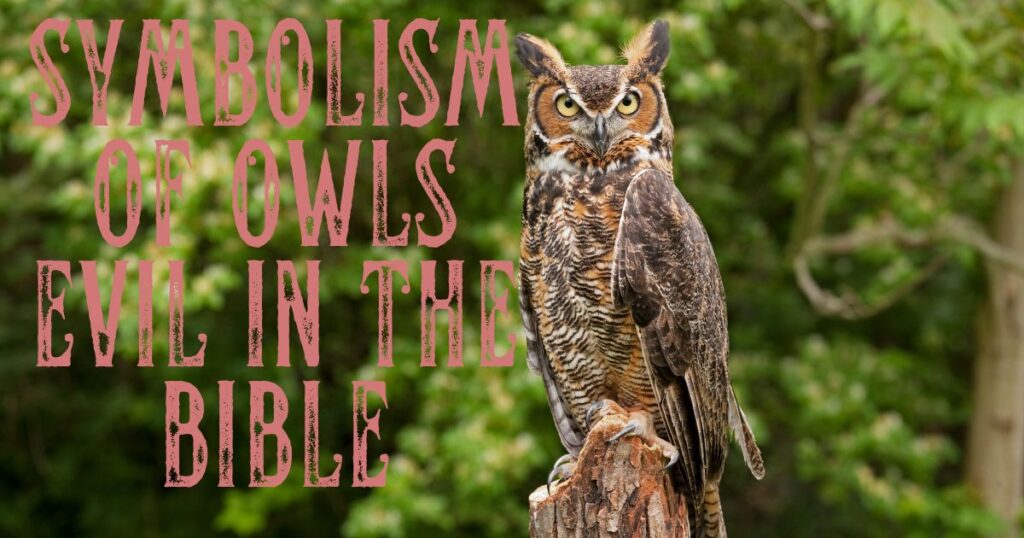
Symbolism of Owls Evil in the Bible
Unclean Animals
The classification of owls as unclean in Leviticus indicates a broader subject of evil in the Bible law concerning purity and holiness. In historic instances, many animals have been deemed unclean for consumption or spiritual purposes. Owls, because of their nocturnal habits and predatory nature, fit into this class.
Desolation and judgement
In Isaiah, the point out of owls in desolate locations symbolises religious barrenness and divine judgement. Their presence in deserted areas displays a kingdom of destruction, which ties lower back Evil in the Bible themes of punishment and ethical decay.
Are Owls Evil in the Bible?
Cultural Interpretations
The query, “Are Owls Evil in the Bible?” can’t be answered without thinking about cultural views. Different cultures have varying interpretations of owls, impacting their perceived symbolism.
Owls in Ancient Cultures
Greek Culture: In Greek mythology, owls are associated with Athena, the goddess of information, symbolising understanding and safety.Native American Beliefs: Many Native American tribes view owls as messengers of dying or omens of misfortune, linking them to the non-secular realm.
African Traditions: In a few African cultures, owls are seen as symbols of witchcraft or horrific luck, reinforcing the concept of their terrible connotation.
Theological Perspectives
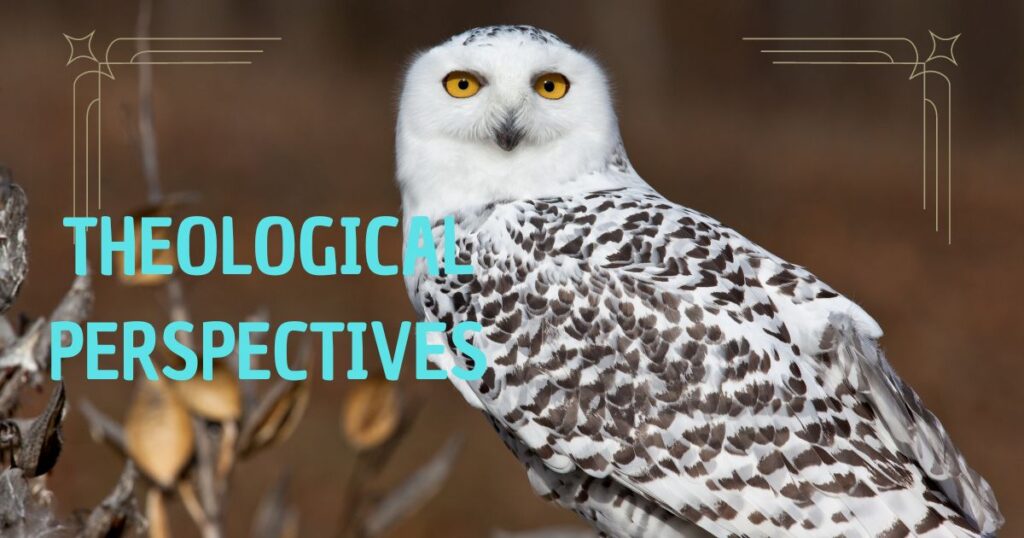
Theological Perspectives
Interpretations by Scholars
The depiction of owls Evil in the Bible can be seen as reflective of broader theological issues. Many scholars argue that the owl’s illustration goes past honestly being categorised as evil. Instead, it serves to demonstrate human non-secular conditions and divine concepts.
Metaphorical Interpretations
Owls can also be considered as metaphors for ignorance or moral blindness. In this experience, they constitute the darker elements of human nature instead of embodying evil in the Bible.
Advantages of Understanding Owl Symbolism
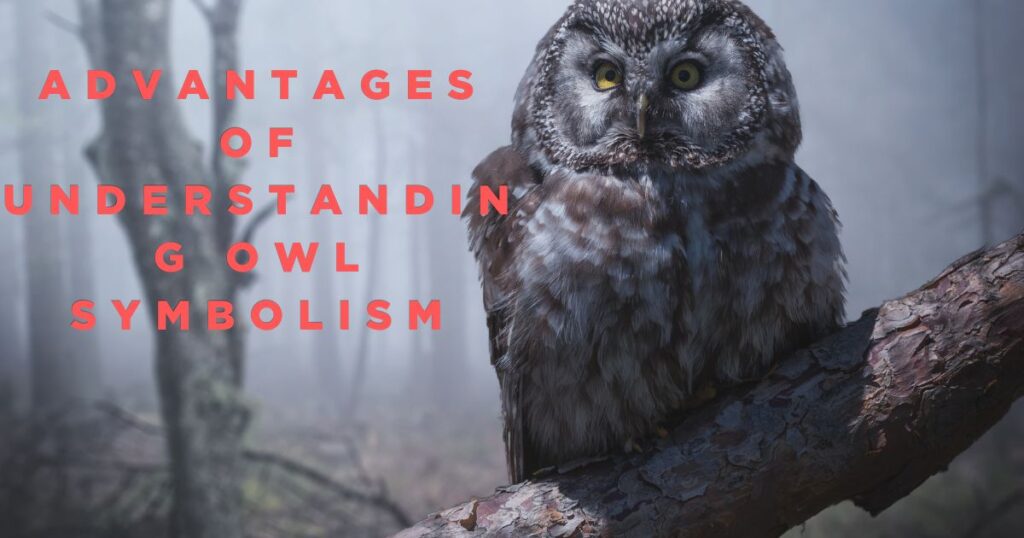
Advantages of Understanding Owl Symbolism
Understanding the symbolism of owls in the Bible offers numerous benefits:
- Spiritual Insight: Recognising the meanings of the evil in the Bible symbols can decorate one’s religious adventure and know-how.
- Cultural Awareness: Acknowledging numerous interpretations fosters a deeper appreciation for extraordinary cultural beliefs and practices.
- Personal Reflection: Engaging with those symbols encourages self-exam and important thinking about private ideals and values.
Important Comparison Table
| Aspect | Biblical View | Cultural View |
|---|---|---|
| Cleanliness | Unclean | Varies (some clean, some unclean) |
| Symbolism | Desolation, judgement | Wisdom, death, bad luck |
| Perception | Negative | Mixed |
Keyword Cluster
- Are owls evil in the Bible?
- Owls in biblical texts
- Symbolism of owls
- Evil in the Bible: unclean animals
- Cultural views on owls
- Spiritual interpretations of owls
FAQs
Q1: Why are owls considered unclean evil in the Bible?
Owls are categorised as unclean due to their predatory nature and nocturnal habits, which were regarded negatively in biblical regulation.
Q2: Do all cultures view owls as evil?
No, interpretations of owls range widely throughout cultures. While some see them as evil omens, others regard them as symbols of understanding or safety.
Q3: What does the Bible commonly say about owls?
Evil in the Bible frequently portrays owls as unclean and related to desolation, symbolising moral decay and divine judgement.
Q4: How can cutting-edge readers interpret the symbolism of owls?
Modern interpretations can vary, with a few viewing owls as charming creatures in preference to symbols of evil. Understanding the cultural and contextual elements is vital.
Q5: Are there any effective representations of owls in the Bible?
While owls are generally seen negatively, they are able to signify a warning towards non-secular blindness and lack of information, prompting readers to reflect on their own spiritual adventure.
Conclusion
In conclusion, the query, “Are owls evil in the Bible?” is complex, and evil in the Bible texts predominantly portrays owls as unclean and associated with desolation and divine judgement. However, cultural interpretations vary broadly, with owls symbolising know-how, protection, or misfortune in special contexts. Understanding those nuances enriches our appreciation of evil in the Bible literature and its relevance to modern ideals. By exploring the wealthy tapestry of symbolism surrounding owls, we will gain deeper insights into spirituality, morality, and our interpretations of the arena around us.

